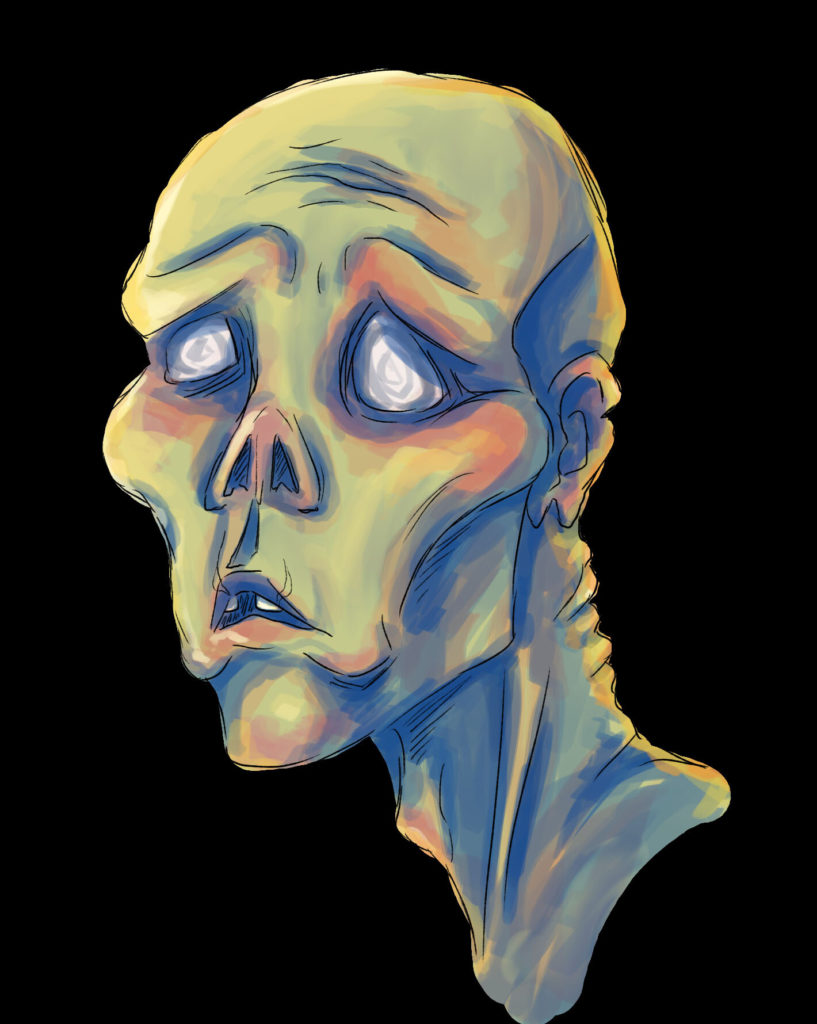Do you speak zombie?
At a time when covid is still prevalent and most of us might be compelled to spend an unprecedented Christmas, as a linguist, one thought suddenly occured to me when I was translating a picture in which there was a zombie:
Should I use “Gwargh”, “Grrarl” or “Grahh”?

The idea might come across as far-fetched or even totally irrelevant in the run-up to Christmas but may nevertheless be food for thought, indeed – no pun intended here (zombie do not eat thoughts, they are more pragmatic. Well, so I have been told).
In the translation world, especially in the fields of comic books, mangas or webtoons, translators are bound to encounter onomatopoeia such as “Garrgh” or “Ghmph” among other things and may stop for a while and ponder over whether “Gwargh”, “Ghmph”, “Grrarl” or “Grahh” is more relevant in such a context.
Practical example
Let’s take an example: Mr. Zombie1 – we will call him Albert because he wears a tie – says to his fellow zombie friend, Ms. Zombie2 – her name is Elsa and Albert likes her eyes, but we’ll keep it at that – the following statement: “I am not sure, my dear, that these remaining humans whet my appetite. I don’t find the skinny one really yummy. Plus, he has got a big nose.” To which Elsa answers : “Neither do I. I am not even sure whether or not he has the covid-23. Well, I guess beggars can’t be choosers… Bon appetit”. Out of contempt and given the look of those panic-stricken humans cornered in the back of the room and located in front of him, Albert then ventures a “Grrarl !”.
So here is the big question: What impact would “Gwaak” have in the reader’s mind, instead of a good old “Grrarl” from the 90s? (90s expressions are timeless, if you ask me)
The role of translators
Kidding aside (or not really…), as a translator, this is a fundamental question. Indeed, most of our work is to transpose, create or reword native expressions into different cultures through the rewording we operate.
In addition, one can only wonder about the influence of such slight differences in onomatopoeia and taking time to choose the right word should not be considered as a nitpicking activity in the translation word, but as a thorough part of a continuous process of improvement in our understanding and grasp of the language we use.
Translators are wordsmiths, after all. And we enjoy creative freedom up to a point.
Not being completely familiar with zombies’ customs and slang for the time being, I, for one, need to do more research on zombie onomatopoeia. However, given that I have already done some on other monsters’ onomatopoeia – not to mention any name here – I might already have a leg up (or not, since Halloween was about 2 weeks ago ^^) . Thus, odds are my previous work will prove fruitful.
Last but not least, as our dear Albert ventured a “Grrarl” (or “Gwaak!”, who knows, mistakes happen), I would conclude here with a French onomatopoeia “Zwish!” depicting the rapidity with which I wrote this post (I zwish! lol).
😉
Posted on December 10, 2020 by Mat.


